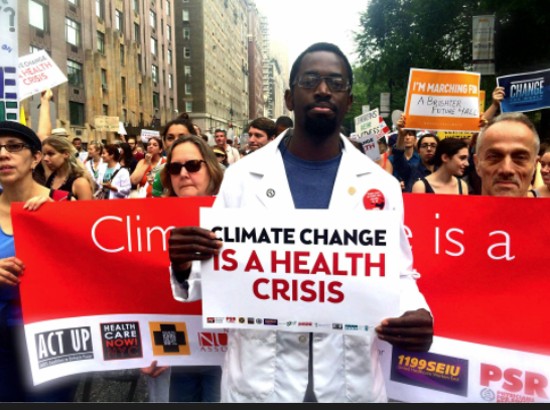As I read a number of articles in today’s newspaper that criticized government policy for being sustainability rather than growth-focused, and business leaders’ critiques about being held to account by ESG measures, I couldn’t help but think about a number of other recent headlines such as:
- On May 17, 2022, a Washington Post headline reads “Pollution caused 1 in 6 deaths globally for five years, study says.”
- On June 1, 2022, a headline in Medical News & Perspectives reads “UN Reports New Insights on Link Between Climate Change and Human Health.”
The Washington Post article references a Lancet report on pollution and health that states in 2015 pollution caused 9 million premature deaths, and that the number since was remaining consistent year to year. That Lancet report cites a 2019 study looking at the global burden of diseases, injuries, and risk factors, and notes that although deaths linked to indoor pollution have been in decline, increasing offsetting deaths were attributable to external air and chemical pollutants associated with industrialization and urban living.
The Medical News from the JAMA (The Journal of the American Medical Association) Network cites findings from the IPCC (UN Intergovernmental Panel on Climate Change) sixth assessment report which I have previously summarized in three postings on this site. You can link to the first of three here.
That UN report notes that between 3.3 and 3.6 billion on the planet are facing irreversible environmental impacts and increased health vulnerability.
The Medical News quotes Renee Salas, an emergency medicine physician from Massachusetts General Hospital, and fellow at the Harvard T.H. Chan School of Public Health who states “Some health harms that were not originally anticipated until later this century are already here.”
Among events cited in the Medical News are the following:
- A recent May heat dome over Pakistan and India that led to hundreds of deaths is now seen as having a 100-times greater frequency of reoccurring.
- A similar heat dome experienced in the Pacific Northwest of Canada and the US last summer is also seen as an event that will increasingly repeat.
- A JAMA study reporting mortality rate increases in the US from 2008 to 2017 associates 0.07 additional deaths per 100,000 adults from extreme heat events.
- An increase in vector-borne disease spread from ticks, fleas, and mosquitoes as these insects expand their geographic ranges into the mid-latitudes leading to increases in Lyme Disease, chikungunya, dengue, and West Nile virus cases.
- Heavier rainfalls and higher temperatures in Africa and Asia leading to increased outbreaks of cholera.
- Similar rainfall and temperature conditions in the US causing drinking water contamination with attendant increases in gastrointestinal disease cases.
- Rising wildfire outbreaks in the US and Canada producing smoke pollution leading to increased cardiovascular and respiratory disease cases, particularly in the young, elderly, and medically fragile populations.
- Heightened temperatures affecting mental health with rising suicide rates, increases in reported anxiety, depression, alcohol and drug abuse, as well as post-traumatic stress disorder (PTSD) cases following increasing extreme weather events.
At the end of the Medical News article, Dr. Salas remarks, “The climate crisis is the greatest threat to health and wellbeing and our opportunity to act is rapidly closing.”
Shouldn’t health be a priority for government and business?
You would think the health of a nation’s population should be a top priority. Yet more often than not, arguments raised by government and businesses point to a need for measured climate change responses.
Both current Canadian and American federal political leaders acknowledge climate change and their countries’ contributions to global pollution. But at the same time, they remind us that others are equally culpable and call for a response that embraces all nations. This then becomes one excuse for the delaying of meaningful responses to climate change through legislation.
The result is we see the continued promotion of the fossil fuel sector including opening up new oil and gas fields and projects. And we continue to see subsidies to the industry, and pollution and carbon pricing exemptions.
Government and business leaders remind us that the energy we get from renewables cannot meet future global electricity demand for the foreseeable future. We, therefore by necessity need to continue relying on fossil fuels being extracted, processed, transported, and burned. What they don’t admit is that through these actions they are aiding and abetting pollution leading to 1 in 6 deaths globally and adding to an increasing health burden within their countries.
Climate change will not go away without meaningful and timely action. Global warming affects everyone. And when we look at ESG, the mantra of a growing progressive green movement in business, it is the E that needs our immediate attention.
ESG stands for environment, society and governance. It is an absolute truth that climate change has social consequences, that it is hardest on the poorest nations and the poorest and most vulnerable populations of our planet. It is true that the societal inequalities that persist need to be addressed.
But if we focus on policy and programs to address the E in ESG, we will be beginning to solve the S issues. And through action, we will demonstrate both in government and business that our attention to the G in our decisions will conform to best global practices.
Dr. Salas is right. Climate change is the greatest threat to the well-being of humanity and the planet.
















